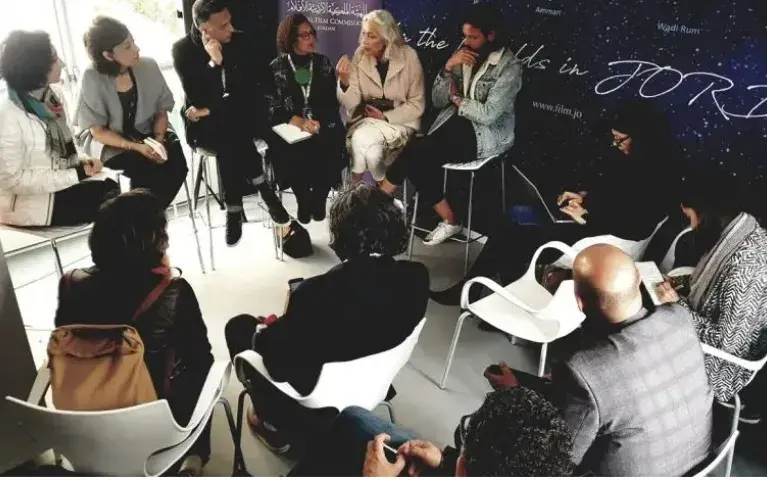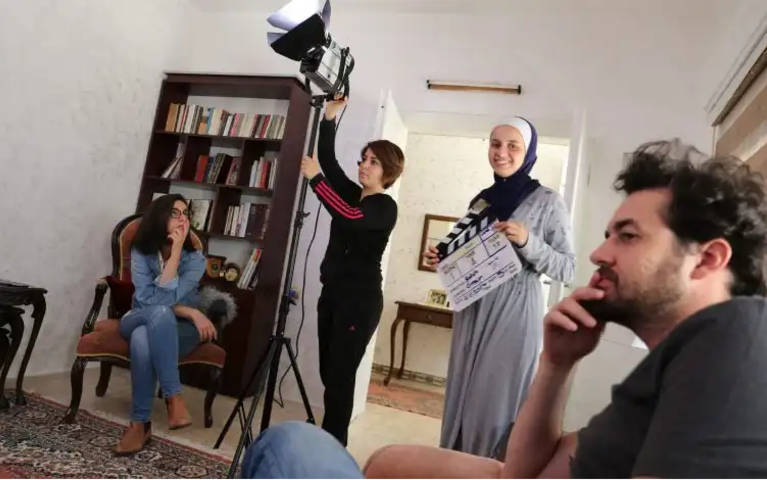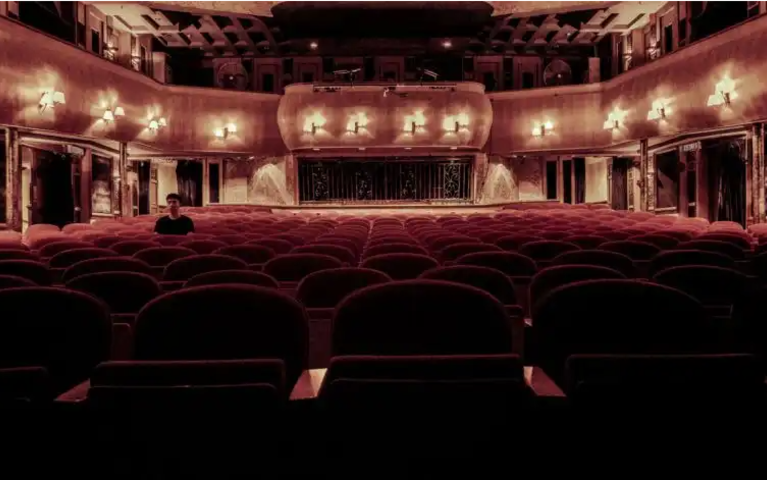HOW CAN ARAB CINEMA SPEAK TO THE WORLD?

During the Cannes Film Festival, last May, The Royal Film Commission – Jordan (RFC) hosted a panel “How Arab Cinema Speak to the World”. The panel, which took place at the Jordan Pavilion, included: Dora Bouchoucha (Tunisian producer), Salem Brahimi (Algerian director and producer), Jihan Tahri (Egyptian director), Najwa Najjar (Palestinian director) and Lucien Bou Chaaya (Lebanese producer). The panel was moderated by Princess Rym Ali, Member of the Board of Commissioners at the RFC.
Bouchoucha kicked off the debate by wondering why Arabs are the only ones to ask the question about how to reach out to the world, and that the mere fact of asking the question means Arab cinema is acknowledging, and probably generating, a divide with the rest of the world.
All panelists agreed that what makes a good movie, which can travel across continents is simply a good story, regardless of its nationality, language or cultural context. Hence the need to develop Arab storytelling skills.
Brahimi said that filmmakers in the Arab World often shy away from dealing with light topics, entertaining comedies or simple love stories. And when they make genre films, they make them Hollywood style. Najjar agreed that “our stories for a very long time have been told by others outside the Arab World. Reclaiming our narrative by telling authentic stories with people we know, problems we face, homes and settings that reflect us are crucial to breaking and changing stereotypes of the Arabs, “terrorists” and other quite unflattering characters, often depicted on TV and in cinema.”
Brahimi went further saying there is some kind of implicit moral pressure on filmmakers in the Arab region to tackle political and societal issues, as if they were complying to what is expected from them. These topics are, of course, important. But, whenever storytellers try hard to articulate a story that doesn’t reflect them – often to please potential funders or international festivals – the outcome is “heavy” or sounds wrong.
He cited the example of “Mascarades” by Lyes Salem, a simple, very well done comedy that doesn’t address major issues in Algeria or elsewhere, but that resonated worldwide. Same goes for the Senegalese movie “Félicité” by Alain Gomis, which won the Jury Grand Prix at Berlin Film Festival in 2017, because it was simply “authentic”, as Tahri underlined.
Tahri regretted that too many frenetic efforts are made “in an attempt to make ourselves understood while specificity remains our most effective weapon”. She added: “As people of the South, we should have our own language to tell our own story. And by language, I mean the way to tell a story. Stories are nowadays told largely in a linear way, while our own storytelling is cyclical. Think of Shehrazade…”.
There was a consensus amongst the panelists, that telling our own stories, our little stories, from our own perspective and in our own way, is what makes them universal. “We need to be wary of being cast in a self-imposed mold,” stressed Bou Chaaya. And there is not one single mold or format.
Unfortunately, noted Bouchoucha, artistic approval and validation seem to have become the sole prerogative of the North. There is a lack, in the region, of important festivals and film critics that can tilt the balance. And it is no surprise that films that are highly acclaimed by Western critics and festivals are often shunned by local audiences.
Developing on the case of Egyptian cinema, Tahri pointed out that until the 80’s, Egyptian movies were distributed in the South with no need for any Western “red carpet validation”. It was a viable South-South economic market, based on cultural exchange. “All this has changed now. We are trapped in the idea of a star system, as though there is only one kind of narratives or one single format for it,” she added.
For Najjar, “making films which can speak to both East and West is not enough by itself. A budding industry, with extremely limited funding in the Arab World, can only have its films thriving when there is a proper distribution that will then ensure revenues and allow for the funding of future films.”
Panelists referred to Iranian and Korean cinemas, which are highly acclaimed internationally, precisely by remaining faithful to their identity, their concerns, their style, their society and their humor. Films tell stories of humans that can by essence be shared by all. “Parasite”, by helmet Korean director Bong Joon-ho and winner of this year’s Palme d’Or, is a case in point. It can be showcased in any remote town in Jordan or South America and will certainly appeal to the various audiences as much as it does in Seoul, where it was made.
The globalized world we live in has certainly many advantages and benefits. Yet, this comes also with an increased withdrawal of one’s identity, precisely as a perverse consequence of this globalization, noted Bouchoucha. She added: “Arab cinema, or more precisely Arab cinemas, can only exist by reinforcing its own identity and being true to itself.” She concluded by quoting Sembène Ousmane, who strongly believed that “artists should express the heartbeats of their people, or they cannot reach other nations.”















